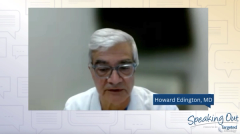
Viral Therapy Considerations for Treatment-Resistant Cancers
As part of its Speaking Out series, Patrick Wagner, MD, discusses eligibility and considerations for oncolytic viral therapies.
Episodes in this series

While viral therapy is a new and exciting treatment approach for advanced cancers, especially when patients have exhausted the available therapy options, there are a multitude of considerations to keep in mind. These include the type of cancer to be targeted and patient’s immune fitness.
“In general, it is going to vary from study to study and from virus to virus in terms of the inclusion and exclusion criteria,” said Patrick Wagner, MD, surgical oncologist at Allegheny Health Network.
Wagner identified some baseline markers that will need to be met for any patient undergoing viral therapy. Basic organ functions like liver, kidney, and bone marrow need to be sufficiently healthy. Additionally, a functional immune system is crucial, as viral therapies often rely on the immune system to attack cancer cells.
Certain tumors and tumor characteristics are more amenable to viral therapy than others. Many studies are ongoing in patients with gastrointestinal and skin cancers. Further, some trials focus on "cold" tumors, which don't readily interact with the immune system. "Hot" tumors, already responsive to standard immunotherapies, might not be good candidates. Finally, for intratumoral injections, the tumor needs to be accessible for injection.
“It is not that visceral injections cannot be achieved, but the risk is higher, and the expense is higher,” Wagner explained. Some therapies may be able to be delivered systemically as well, which may mitigate this issue.
As part of its Speaking Out series, Wagner discusses these considerations of viral therapies and other eligibility factors with Targeted OncologyTM.










































